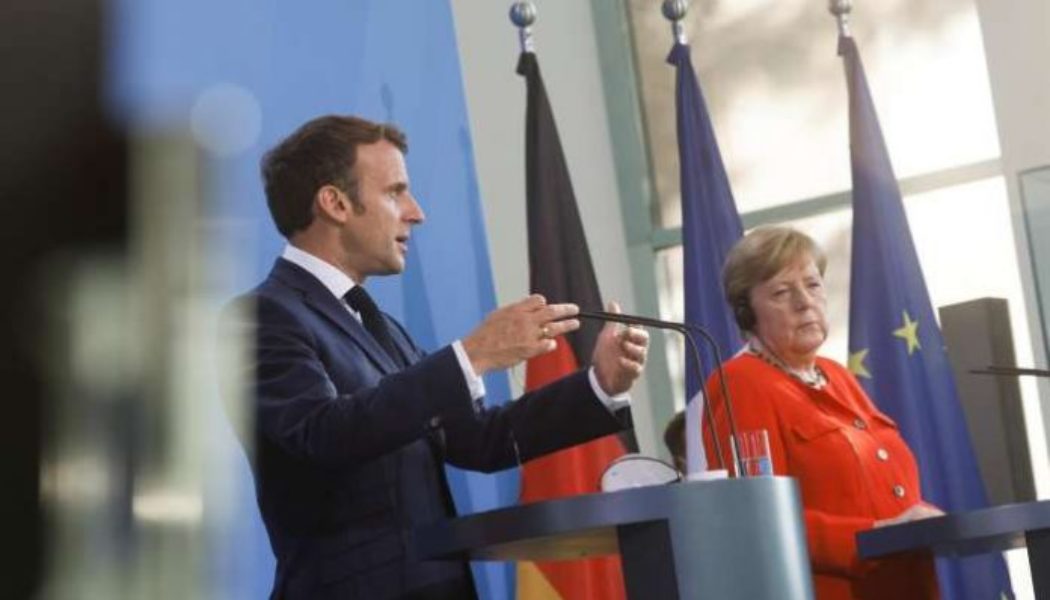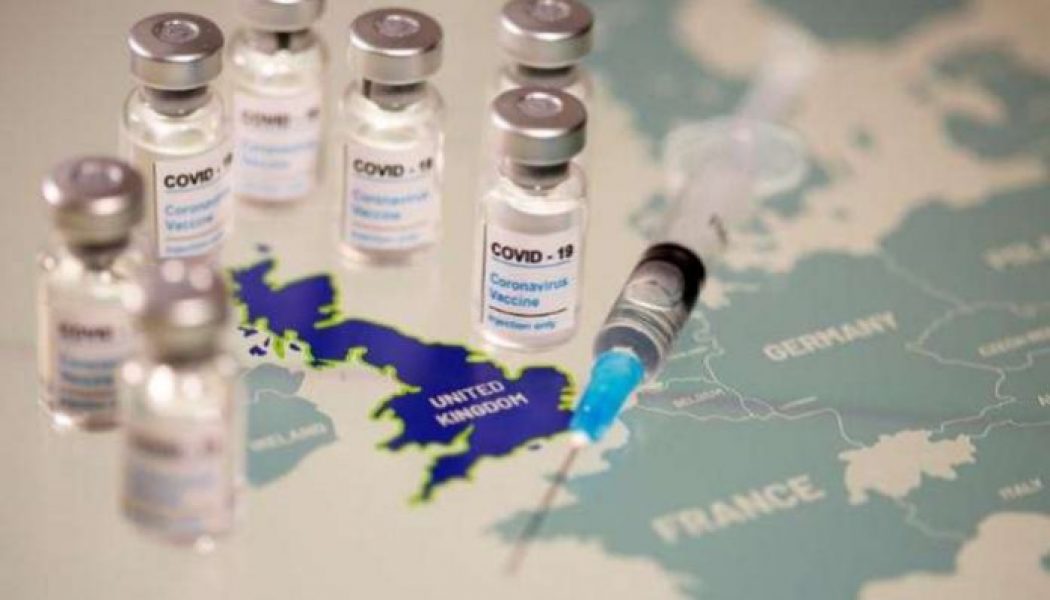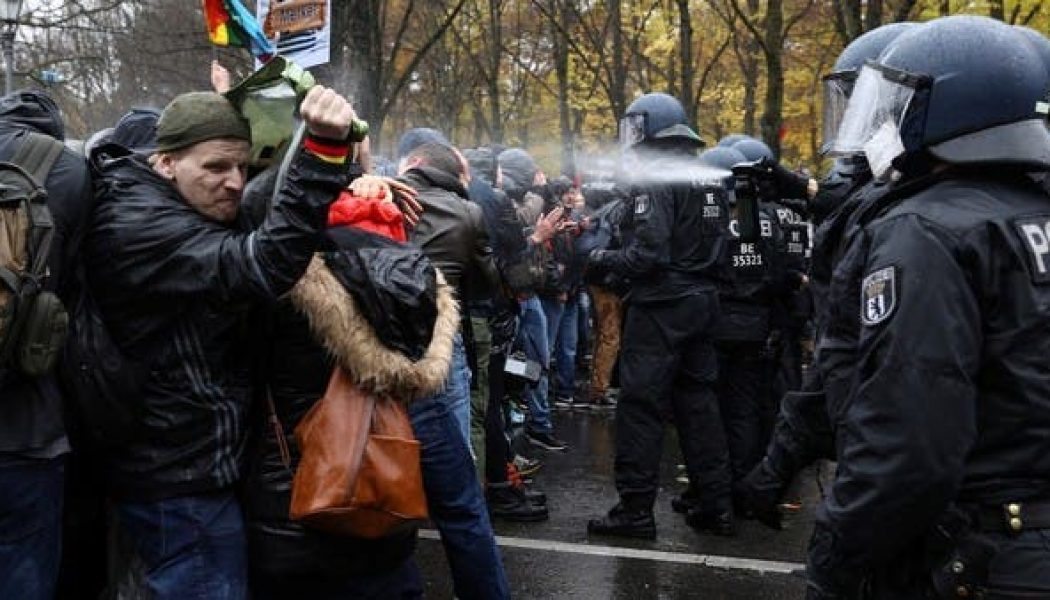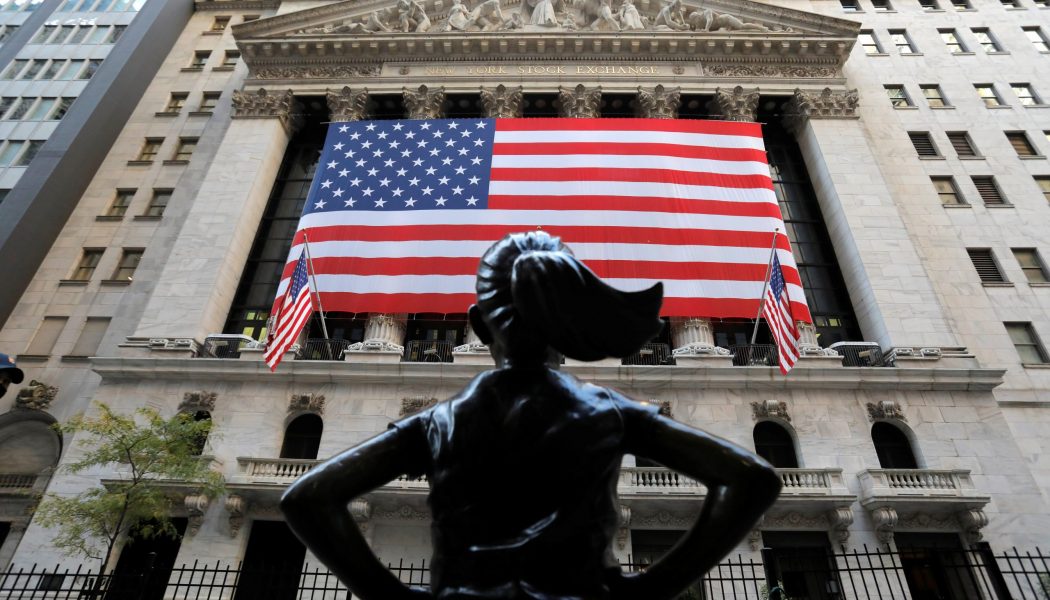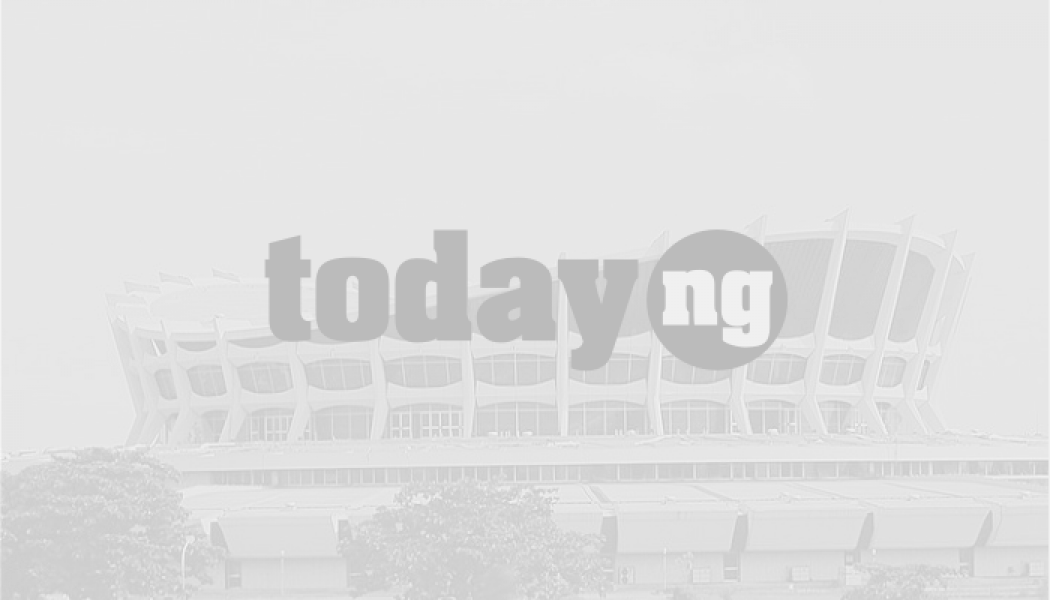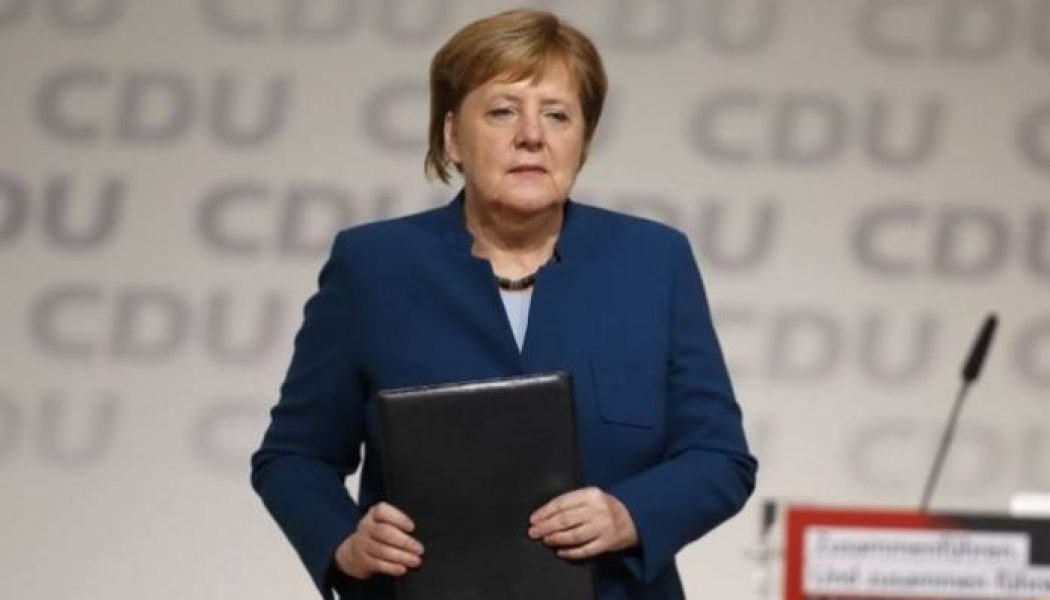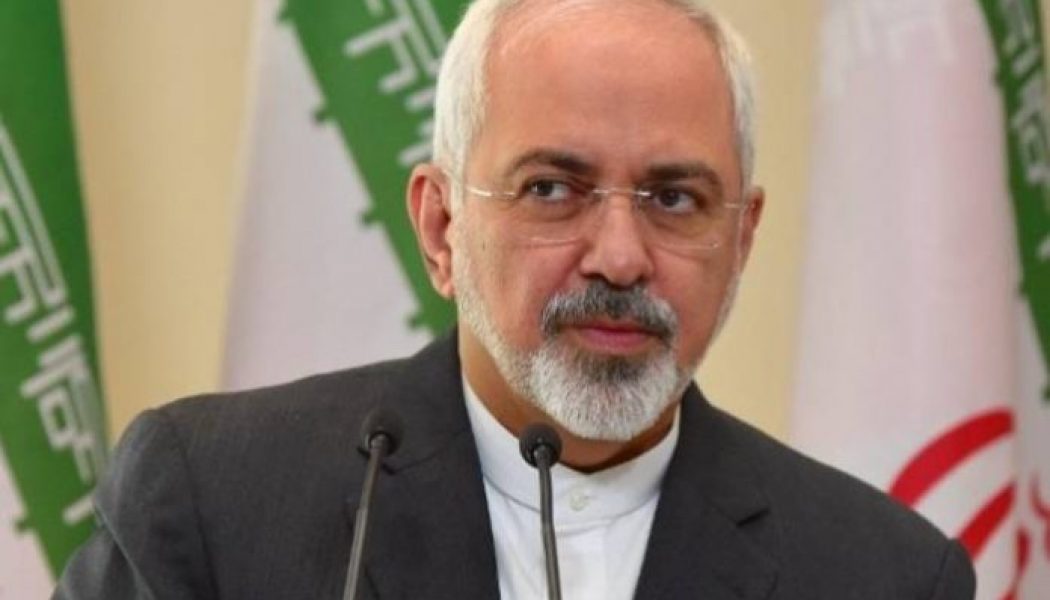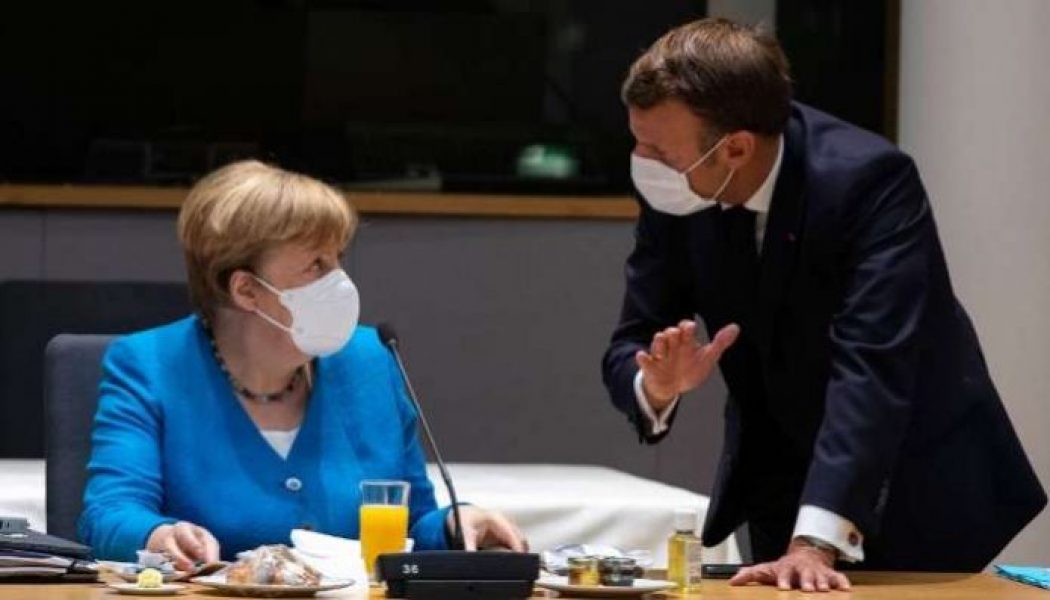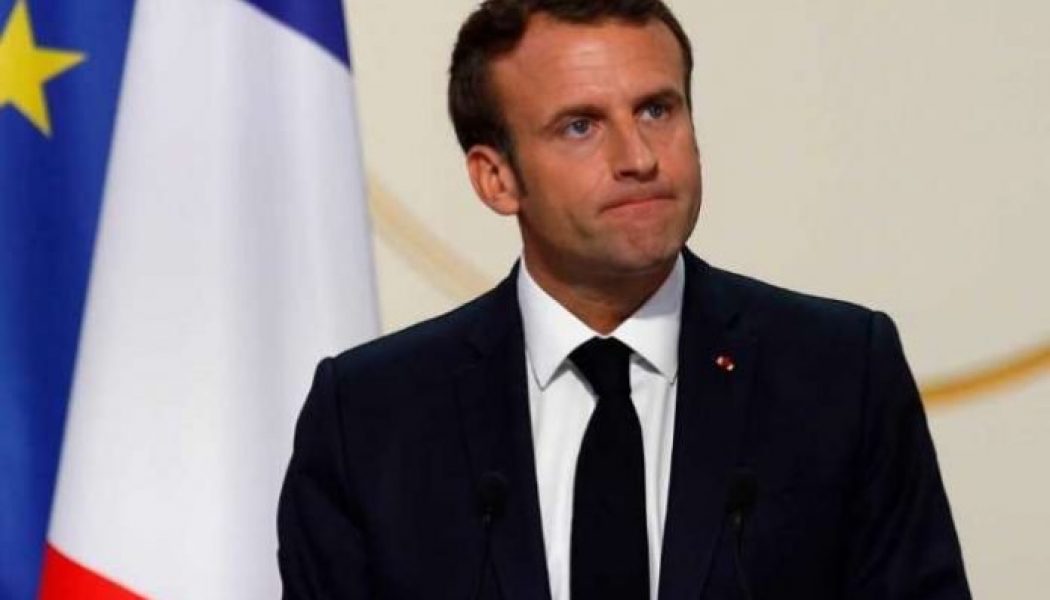Angela Merkel
Coronavirus: England to lift mask, distancing rules July 19
Prime Minister Boris Johnson on Monday revealed plans to lift most of England’s legal coronavirus restrictions, including face masks and social distancing from July 19, urging personal responsibility rather than government edict. Johnson had initially aimed for a full reopening on June 21, but was forced to push back the date because of a surge in the highly contagious Delta variant. That variant now accounts for nearly all new Covid-19 cases in Britain, and infection rates have soared, sparking concern. But mass vaccinations have stopped a resultant surge in hospital admissions or deaths. “This pandemic is far from over, it certainly won’t be over by the 19th,” warned Johnson. “We must reconcile ourselves, sadly, to more deaths from Covid. “There’s only one reason why we can contemplate g...
French, German leaders urge EU coordination on reopening borders
German Chancellor Angela Merkel and French President Emmanuel Macron called on Friday for European Union countries to coordinate their COVID-19 border reopening policies and guard against new variants of the virus. Macron said EU countries must be careful not to allow new variants to spread, adding that the EU was watching developments in Britain, which has seen a steep rise in the weekly reported cases of the Delta variant. “Some countries have reopened their borders earlier for tourist industry reasons, but we must be careful not to re-import new variants,” he told a joint news conference with Merkel before a working dinner at the chancellery in Berlin. Merkel added: “We can’t act as if the coronavirus is over.” “Caution is still necessary so that we have a summer of many freedoms, if no...
EU, China to hold talks on blocked investment deal
Agence France-Presse German Chancellor Angela Merkel is to speak with Chinese President Xi Jinping on Monday as part of high-level talks between Beijing and the European Union that should reinvigorate stalled talks on an investment pact. The EU wants to agree on a plan to wrap up the deal, according to a high-ranking EU official, with the goal being to conclude negotiations by the end of the year. The European Commission has been negotiating with China on an investment agreement for more than six years. But Brussels wants further concessions from Beijing on market access and assurances for EU companies. From the EU side, Commission President Ursula von der Leyen and European Council Charles Michel are to participate in the video meeting, with an agenda covering climate change, economic and...
Tehran, Brussels reject Donald Trump’s ‘snapback’ plan for Iran sanctions
Iran and the European Union have both rejected United States President Donald Trump’s plan to trigger the “snapback” mechanism in the Iranian nuclear deal to impose sanctions on Iran. “The Americans got out of the atomic deal in May 2018 and they know very well that the implementation of the snapback is something illegal and, therefore, absolutely unacceptable,’’ Iranian Foreign Minister, Mohammad Javad Zarif, said on Sunday, according to state media. The snapback was granted to the participants in the 2015 Vienna nuclear agreement between major world powers and Iran in the event that Tehran violates it. However, under Trump, the United States withdrew unilaterally from the agreement in 2018. “Since Washington withdrew from the agreement, officially known as the Joint Comprehensive Plan of...
Berlin, Rome, Paris threaten sanctions on states interfering in Libya
France, Italy and Germany are “ready to consider” sanctions on foreign powers violating an arms embargo in Libya, a joint statement by their leaders said Saturday. The statement did not directly name any foreign actors funneling arms to Libya but multiple powers have been sending fighters and weapons, fuelling a bloody proxy war that reflects wider geopolitical rifts and divisions in the Middle East and within NATO. While forces loyal to strongman Khalifa Haftar are backed by Russia, Egypt and the United Arab Emirates, the UN-recognised unity government is fighting back with Turkey’s support. “We … urge all foreign actors to end their increasing interference and to fully respect the arms embargo established by the United Nations Security Council,” the statement said. “We are ready to consi...
Emmanuel Macron, Angela Merkel agree €500 billion coronavirus recovery plan for Europe
France and Germany proposed Monday a 500-billion-euro ($542-billion) fund to finance the recovery of the European Union’s economy from the devastation wrought by the coronavirus crisis. Putting aside past differences and seeking to prove that the Franco-German core of Europe remains intact, President Emmanuel Macron and Chancellor Angela Merkel announced the unprecedented package after talks by video conference. European Central Bank head Christine Lagarde told major European newspapers that “the Franco-German proposals are ambitious, targeted and welcome.” With the European economy facing its biggest challenge since World War II, Macron also acknowledged that the EU had fallen short in its initial response to the virus and needed to coordinate more closely on health. Financed by “borrowin...


